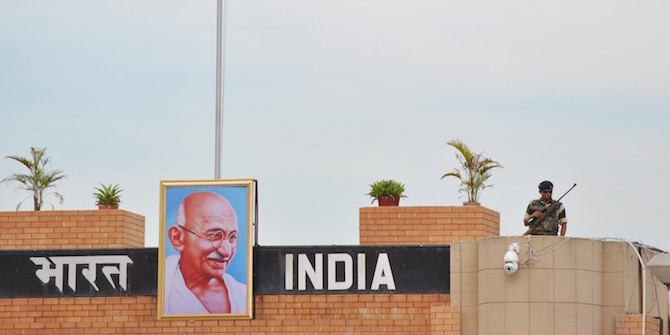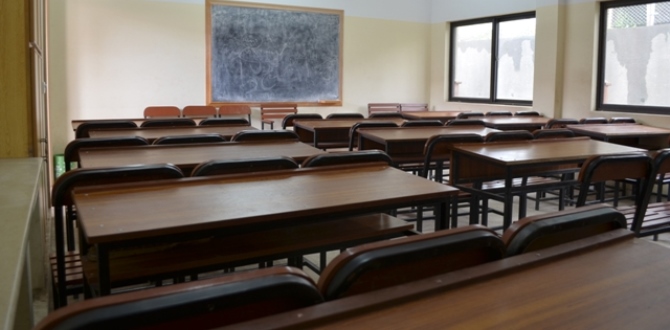Karachi is a sprawling, diverse city, with a population estimated at more than 20 million. It is also notorious for high crime rates and its inhabitants have limited trust in the police. However, the Citizen Police Liaison Committee, a civil society organisation run by volunteers works to tackle both these issues. Here, Jameel Yusuf, founding member and former Chief, talks to Sonali Campion about how the CPLC has supported and supplemented law enforcement agencies in Pakistan’s largest city.
SC: How did the Citizen Police Liaison Committee come about and what were its aims?
JY: The Citizen Police Liaison Committee (CPLC) was established in 1989 with the then-Governor Fakhruddin G. Ebrahim. He identified a need to bridge the gap between citizens and the police, with an emphasis on service-orientated policing rather than policing under mafia or political control. The perception was that this would build confidence and could go a long way to catching criminals and combating terrorism. He took approval from Benazir Bhutto on this matter, and I must say it was an excellent reflection of her vision that she gave the go-ahead to set it up immediately. We had her blessing even though we are not politically inclined with any party, and we made that very clear.
At that time there was an increase in kidnapping. This was 1989-90 and schoolchildren and businessmen were being held for ransom, creating restlessness in the business community. Businessmen like myself, selected by the Governor, were brought in to do the initial pilot covering four precincts for six months and it very successful. The feedback was excellent so the Governor amended the police law and made us a part of the institution. It was honorary and voluntary, there was no salary, and all set up costs were covered by personal contributions – nothing from the state. The only thing we did get was space in Governor House. In places like India and Pakistan, the Governor House or Chief Minister’s House carry a certain amount of weight so the police will listen. So that’s where we set up the central office.
The CPLC has been described as indispensable to law enforcement. Is it not a problem that it has so much sensitive information and is directly involved in interventions yet is not part of the police force?
No, the good part was that we never worked against the police. We saw their weaknesses, but we wanted to support them. If someone was kidnapped their family would divulge information to us because they would not have confidence in the police. With that information we started detection, and we were very successful. Our detection rate turned out to be over 95%, which was higher than any regular police force anywhere in the world.
At that time computers were also a rarity, but being businessmen we had already started introducing them in our offices, so we had access to newer technologies. We could log and trace stolen vehicles, criminal data etc. That was our strength. We became the need of the police but there was not any competition or animosity between us, and we never exposed information or anything which would be sensitive.
Were there safeguards in place, or was that based on trust?
When we were investigating a crime obviously only the police and CPLC would have access to the details. But other data, like criminal records, should technically be public information anyway. It is in the backward areas of Pakistan where we sit on this data as if it is top secret, which is not the case.
When Benazir Bhutto was prime minister she asked us to computerise the criminal records. Now when the PM of a country is choosing a civil society organisation to do the criminal record management, you can understand the level of faith she had in us. We lived up to it and the system we created was really amazing. We got the best computers and servers, and all the necessary data was available. Once the baseline was established the UNDP and the economic affairs division of Pakistan collaborated in further to strengthen our systems. For example, consultants were invited from abroad, and technical help was provided in areas such as spatial crime analysis. By the late 1990s we were getting access to technologies which gave a very clear understanding of where crime was taking place. In some cases we could even pre-empt them, especially using mobile data. There was so much trust. We never saw it as a competition with the police.
On the point about technology, could you give me an example of a case where you felt you were deploying cutting-edge technology and it was that which really helped you solve the case?
The Daniel Pearl case is a good example. I’m proud that we were the ones who tracked down his kidnappers. We took Daniel Pearl’s laptop — of course [his wife] Mariane was there and his friend and colleague Asra Nomani — and we deciphered certain numbers from the mobile data. At that time, nobody in Pakistan was using this kind of technology, but we were able to draw on it to create areas and boundaries where the mobile numbers were being used. The FBI came to Karachi and together we solved the Pearl case within five days. From a blind alley of some terrorists picking him up, we zeroed in on who it could be, where could it be. That led us to Omar Sheikh’s house, and the arrest.
Sheikh was an international terrorist, although he was not very successful. The first kidnapping he did was of some foreigners in India, and he got caught. The second kidnapping was Daniel Pearl, and he got caught. I don’t think those were very intelligent moves, but it does highlight how these terrorists cross territorial boundaries. India often suggests that whenever there are acts of terrorism, it is Pakistan’s doing. But this is one example of how one person committed crimes in India and in Pakistan, demonstrating that these are bigger networks. If we collaborated and shared data (as has been done in the past, although it is often not widely reported) a lot of embarrassment and unnecessary accusations could be avoided. With Bangladesh as well, if we all shared our information we could do a lot better, and use our foreign offices to develop friendship, not hate.
What involvement do you have now in tackling crime in Karachi, or in Pakistan more widely?
I left CPLC in 2003, but in the 16 years I worked there I made it into an institution. It’s very strong now, and with sophisticated data management and trained volunteers, it continues to liaise with the police around a lot of issues. It’s also stayed neutral. During my tenure we worked with Benazir’s government but we also had PM Nawaz Sharif come and talk to us, take our opinions and ideas. We’ve seen them all and we’ve stayed impartial, and that has been appreciated. That is why the CPLC has continued to serve. The foundation was based on totally apolitical grounds.
I am called in regularly to advise on negotiations, because in the period from 1990 to 2003 I handled over 300 abduction and big extortion cases. This included international ones, with abductors who kidnapped in India and took ransom payment in Karachi, or took payment in London.
It is worth noting that the CPLC did not only take on crime detection cases, we also took on the services of leading criminal lawyers in convicting terrorists. The challenge has been delivering punishment. Kidnapping for ransom in Pakistan carries a death sentence, but the European Union and others were always against the death sentence. I always said, why not ask the families whose children are abducted?
Is execution really the best solution, and will it prevent future crimes?
There is no university in the world that can give a certain answer to this. But if a terrorist knows that if he commits this crime and the punishment for it is death, why don’t we do it? At the moment they languish in jails. 8,000 terrorists have been given death sentences by the Supreme Court in Pakistan but in the last 15 years we have not been carrying them out. It is only lately when the new chief of army staff came in and the school children were killed in Peshawar that the assembly said let’s go ahead and do it. Yet they’re still not doing it in full swing. We really need to think, should we show compassion to the terrorists or the victims? That is the choice we have.
And do you actually see it as a choice between one or the other?
Exactly, it is nothing else. Under Islamic law, no one can forgive except the family of the victims. That is our law, even the president of Pakistan can’t do it. In murder cases if the family feels the perpetrator should not be hanged, yes, they can forgive them. But it should go through that due process.
Finally, on an international level, what do you think the prospects are for tackling large-scale terrorism?
The answer lies in joint collaboration to share relevant information and strengthen each other’s detecting capabilities. We all talk about fighting the war on terror, and Pakistan has been the biggest partner this conflict. We have lost 70-80,000 lives in combatting terrorism, and yet we are not finished. Sharing data, and getting latest technology is key. For example, Britain is highly advanced in counterterrorism technology, that’s why they can pre-empt a lot of it. Criminals also have to be convicted at the end of this process.
Policing is about gathering intelligence and that needs to be shared. We also need to combat poverty and give better. If we can do that, I’m sure we can make the world a better place to live in. Pakistan is making an effort in that area and I hope we can manage it.
The topic of Philanthropy and Institution Building will be discussed at the Pakistan @ 70: LSE Pakistan Summit in Karachi on 10-11 April 2017. Registration for the conference is now open and you can register here. Click here for more information.
Cover image: Karachi Seaview Skyline. Credit: Adeel Anwer CC BY-ND 2.0
This article gives the views of the author, and not the position of the South Asia @ LSE blog, nor of the London School of Economics. Please read our comments policy before posting.
About the Author
Jameel Yusuf is a businessman and founding member of the Citizen Police Liaison Committee. He also served as Chief of the CPLC until 2003.
Sonali Campion is Communications and Events Officer at the South Asia Centre. She holds a BA (Hons) in History from the University of Oxford and an MSc in Comparative Politics from LSE. She tweets @sonalijcampion.







